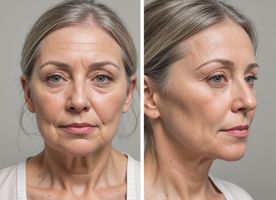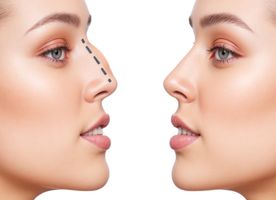Cleft Lip or Palate Repair in Malaysia
Search and Compare the Best Clinics and Doctors at the Lowest Prices for Cleft Lip or Palate Repair in Malaysia

















































































































































No Time?
Tell us what you're looking for and we'll reach out to the top clinics all at once
What does a Cleft Lip or Palate Repair Procedure Involve?
Cleft repair is based on your child’s particular situation. The repair plan can be tailored to meet the child’s individual needs. The repairs are typically carried out in the following order:
- Cleft lip repair is performed within the first 3 to 6 months of age, depending on your child’s health status.
- Cleft palate repair is performed in a separate surgery when the child is 12 months of age or earlier if possible.
During cleft lip or palate repair surgery, your child will be given a general anesthetic, so they will not be awake or feel any pain. Several different surgical techniques can be used to repair cleft lip and palate, reconstruct the areas, and treat or prevent related complications. In general, the procedures may include:
- Cleft lip repair – to start the procedure, the surgeon creates incisions on both sides of the cleft and makes flaps of tissue. Then the surgeon stitches the flaps together, including the lip muscles. This will close the separation of the lip and create a more normal lip appearance. The surgery performed to close cleft lip repair is known as cheiloplasty. If your child needs nasal repair, the procedure can be carried out at the same time.
- Cleft palate repair – surgery to repair cleft palate is called palatoplasty. During the surgery, the surgeon makes an incision on both sides of the cleft to reposition the muscles and tissue. Then, the repair is closed with stitches.
How Long Should I Stay in Malaysia for a Cleft Lip or Palate Repair Procedure?
The length of your stay at Malaysia for Cleft Lip or Palate Repair depends on many factors. The complexity of the cleft and surgical correction could decide your recovery time in days or weeks. You'll be monitored in a recovery room after the treatment and may need an overnight stay to manage post-operative pain and problems. Overall, follow-up checkups and healing monitoring could need a 2-week stay.
Before diving into your recovery phase, remember that it's crucial to success. Your surgeon will likely recommend many follow-up appointments to check your healing, requiring a longer stay in Malaysia. For complete post-operative care and emergency management, you must be present. In addition, post-surgery problems or delayed recovery may require extra attention and care, prolonging your stay.
What's the Recovery Time for Cleft Lip or Palate Repair Procedures in Malaysia?
The time it takes to recover from Cleft Lip or Palate Repair procedures in Malaysia can vary from person to person, largely due to individual patient attributes and the nature of the operation conducted. Typically, recovery from a cleft lip repair tends to span around 1 to 2 weeks, whereas healing from a cleft palate repair—a more complex operation—usually extends between 2 to 3 weeks. Besides, while recovering physically from the surgery is an important part of the process, the emotional and psychological adaptation may take differing durations for each individual.
In the initial days after the operation, patients may encounter some pain and uneasiness. However, prescribed painkillers, under appropriate medical guidance, can usually control this. Regular follow-up assessments help monitor the healing process to verify it's proceeding as planned. It is essential for patients and their caregivers to adhere to all healthcare professional instructions, like maintaining proper oral cleanliness, adhering to any suggested dietary limitations, and steering clear of demanding activities throughout the recovery period.
What sort of Aftercare is Required for Cleft Lip or Palate Repair Procedures in Malaysia?
Here are some ways you can care for your child at home:
- Ensure your child gets enough sleep at night and rest as much as possible. However, allow them to gradually become more active.
- Put your child to sleep on their back.
- Do not use a pacifier or let your child put toys, hands, or other objects in their mouth.
- The surgeon will give instructions for feeding your child. Make sure to follow it. You may need to use a special bottle to give your child breast milk and formula. You also need to give your child plenty of fluids.
- Wash the area around the incision with clean water. Ensure to keep it clean and dry.
In some cases, your child may need additional surgery to improve the appearance of the lip, nose, and mouth, as well as to reduce the risk of chronic ear fluid. Your child may also need speech and language therapy. Make sure to discuss these additional surgeries with your child’s doctor.
What's the Success Rate of Cleft Lip or Palate Repair Procedures in Malaysia?
When performed by skilled surgeons in reputable hospitals, Cleft Lip or Palate Repair treatments in Malaysia have a 90-100% success rate. This success rate depends on two factors:
- Successful physical repair and aesthetic enhancement of the cleft
- Better functionality, particularly speech and swallowing for cleft palate repairs.
The success rate has increased dramatically due to surgical technique advances, improving patient outcomes and quality of life.
Even though cleft lip and palate repair techniques have high success rates,'success' goes beyond surgery. It includes post-operative recuperation, speech function, respiratory comfort, and dental and facial aesthetics. Speech therapists, orthodontists, psychiatrists, and the surgical team work together to make these operations successful. Pre-procedure communication with your surgical team on expected outcomes and potential issues helps guarantee clarity and realistic expectations, contributing to'success'.
Are there Alternatives to Cleft Lip or Palate Repair Procedures in Malaysia?
Surgical correction is the best treatment for cleft lip and palate. This is because the anatomical deficiency is unique, requiring careful surgical correction to restore normal shape and function. While medical technology advances, there is no direct option that can replace or recreate Cleft Lip or Palate Repair Results in Malaysia or elsewhere.
However, cleft repair treatments are supported by a wide range of therapies and interventions to maximize results such as:
- Nutrition may be improved using special feeding methods and equipment before surgery.
- Speech therapy is crucial to healing and growth after cleft palate procedures.
- Orthodontic treatments may be needed as the kid grows to align the teeth.
- Social and emotional issues can be addressed through psychology and counseling.
While these are not alternatives, they are a crucial aspect of the entire management regime that should be considered alongside the surgery.
This information has been accurately sourced and verified by a medical professional for its accuracy, however, we strongly recommend you to consult with your doctor before pursuing medical procedures overseas.












